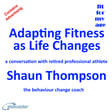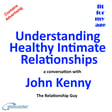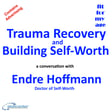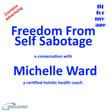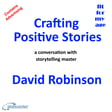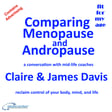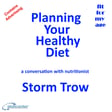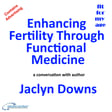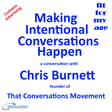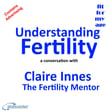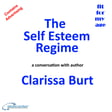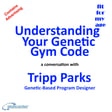
Understanding the Gut Brain Axis - a conversation with Dr Emily Prpa from Yakult
Dr. Emily Prpa, is a Registered Nutritionist, the Science Manager for the UK and Ireland at Yakult and a visiting lecturer at Kings College London.
In this episode of the Abeceder podcast Fit For My Age Emily explains the relationship between the gut and the brain to host Michael Millward.
Their conversation covers a wide range of gut management issues, including what the gut is and where it sits in the body. How the gut works and why and how the gut communicates with the brain.
Emily explains how you can assess how effectively your gut is working and the steps you can take to improve the effectiveness of your gut.
This episode of Fit For My Age includes some graphic descriptions of bodily functions, but with aim of increasing understanding and helping you achieve better gut health.
It is advisable to consult your doctor before undertaking health related treatment.
Audience Offers
Proactive Positive Ageing.
It is always a good idea to know the risks early so that you can take appropriate actions to maintain good health, that is why we recommend The Annual Health Test from York Test.
York Test provides an Annual Health Test. An experienced phlebotomist will complete a full blood draw at your home or workplace. Hospital standard tests covering 39 different health markers are carried out in a UKAS-accredited and CQC-compliant laboratory.
A Personal Wellness Hub gives access your easy-to-understand results and guidance to help you make effective lifestyle changes anytime via your secure, personal Wellness Hub account.
Visit York Test and use this discount code AGE25.
Fit For My Age is made on Zencastr, because Zencastr is the all-in-one podcasting platform, that really does make creating content so easy.
If you would like to try podcasting using Zencastr visit zencastr.com/pricing and use our offer code ABECEDER.
Travel Members of the Ultimate Travel Club enjoy travelling at trade prices on flights, trains, hotels, holidays and so many other travel related purchases. Use the link to access discounted membership.
Find out more about both Michael Millward and Mark Fox at Abeceder.co.uk.
Matchmaker.fm If you are a podcaster looking for interesting guests or if like Emily, you have something interesting to say Matchmaker.fm is where great hosts and great guests are matched and great podcasts are hatched. Use our offer code MILW10 for a discount on membership.
Being a Guest
If you would like to be a guest on Fit For My Age, please contact using the link at Abeceder.co.uk.
We recommend the podcasting guest training programmes available from Work Place Learning Centre.
We appreciate every like, download, and subscriber.
Thank you for listening.
